Sponsorship
Sponsorship can make it easier to deliver a high-quality experience for attendees while adding to your event’s credibility, promotional efforts and financial viability.
Value flows in three directions within a sponsorship arrangement:
- An organisation considering sponsoring your event will want to know the return on their investment (ROI).
- Your event needs to receive a tangible benefit from the sponsorship.
- The sponsorship value should also flow through to the experience of your attendees to ensure that all parties benefit.
Sponsorship investment can come in many forms, including cash, advertising, prizes, professional services, exclusive offers for attendees and more. In return for this investment, you should be creative and flexible with your offerings, working to the strengths of your specific event and attendee demographics to add value for your sponsors.
TIPS
Choosing sponsorship partners
- Create a wish list of sponsors – consider which organisations have public image and customer demographic spreads that align with those of your event.
- Identify the reasons a sponsor may come on board for your event, such as brand awareness, to support their community philanthropic strategy or to create an opportunity to host their own clients.
- Think about creative ways your potential sponsorship partners could add value to your event and your attendees’ experience.
- Identify strengths and resources your event can leverage to create value for your sponsors.
- Research who the best person/role within a potential sponsor organisation is to pitch your proposal to and ensure it gets to them directly.
Sponsorship proposal
- Research each potential sponsor and write a tailored proposal that shows the value of their involvement and how it will specifically benefit them.
- Create a visually appealing and well worded proposal. This is a key selling tool to highlight your event to potential sponsors. Consider including:
- an event description (event name, date, venue, important features and facts)
- target audience demographics
- sponsorship options (e.g. sponsorship tiers)
- sponsorship benefits (refer examples below)
- proof of value (e.g. social media metrics, event statistics, testimonials – for new events, use any reliable forecasting metrics that you have available.
- timeline of opportunities leading up to and following your event
- basic terms and conditions – these can be negotiated and finalised at a later date as agreed by both parties.
Examples of sponsorship benefits
- Sponsor status – use of phrase ‘major sponsor’, ‘event partner’, ‘gold sponsor’ etc.
- Naming rights – for the whole event or certain aspects within it.
- Signage rights – sponsor name and/or logo on signage at your event.
- Recognition of sponsor - sponsor acknowledgements and/or logo in promotional material produced in connection with your event (e.g. newsletters, programmes, registration forms, posters, print advertisements, social media postings, event site signage including flags and banners, event website with hyperlinks to the sponsor’s website).
- Advertising and promotion
- Radio and print media – publicise the relationship between the sponsor and your event.
- Media release – ensure the sponsor is mentioned and the relationship acknowledged in any media releases concerning your event and related activities.
- Public address system – include recognition of the sponsor in public address system announcements at your event.
- Leverage benefits – proactively look for and create opportunities for newsworthy activities in connection with your event to ensure maximum potential for media coverage.
- Receptions, functions and leveraging opportunities
- Invitations/tickets - complimentary tickets to your event and/or to any functions that would take place in direct relationship with your event.
- Speaking opportunities at functions.
- Corporate hospitality hosting.
- Leveraging opportunities as negotiated between your event and the sponsor.
- Other benefits
- Branded merchandise and/or event uniform.
- Securing paid work for your event (e.g. preferential supplier of event elements).
- Preferential seating or exclusive backstage access.
Sponsorship types
- Financial sponsorship – financial assistance to help cover the cost of your event, making it more feasible for you to plan and execute it successfully.
- In-kind or contra sponsorship – products or services in lieu of cash sponsorship. For example, a catering company might provide food and drinks for your event in exchange for branding and marketing opportunities.
- Media sponsorship – advertising and promotional support for your event, such as coverage in print, online, or broadcast media outlets.
- Equipment or venue sponsorship – essential equipment or space for your event, such as sound systems, lighting, or stages.
- Talent sponsorship – keynote speakers, performers, or other talent for your event, adding value to the programme and enhancing the attendee experience.
- Promotional sponsorship – promotional opportunities for event organisers, such as inclusion in their marketing campaigns or cross-promotion with their own events or products.
- Barter sponsorship – exchanging products or services with the sponsor, such as a ticket to your event in exchange for services provided by the sponsor.
Sponsorship tiers
An effective approach can be to offer tiered sponsorship package options, providing varying levels of benefits to match different sponsors’ investments. Framing the sponsorship proposal in this way and ensuring exclusivity for higher tiers can increase the perceived value of your offerings.
Example: Promotional Partner Sponsorship Package Options:
|
Sponsorship Package: |
Gold |
Silver |
Bronze |
|
# Available: |
1 |
2 |
10 |
|
Investment Required: |
On-Air / Online Promotion Gold Package + $25,000 |
On-Air / Online Promotion Silver Package + $2,500 |
On-Air / Online Promotion Bronze Package + $500 |
|
Exclusive Event Naming Rights |
Yes |
No |
No |
|
Logo on event website |
Yes |
Yes |
Yes |
|
Logo on all event media |
Yes |
Yes |
No |
|
Social media promotional posts |
4 |
2 |
1 |
|
Complimentary tickets to give away on air / online |
20 |
10 |
5 |
|
Branded signage prominently displayed at event + M.C. Shout-Outs |
Yes |
Yes |
No |
|
Branded VIP Lounge setup at event |
Yes |
No |
No |
|
20 x VIP Lounge Tickets for staff, corporate guests etc. |
Yes |
No |
No |
Sponsorship agreement
Once your sponsorship proposal pitch is accepted and the sponsorship arrangements have been determined, you are ready to formalise a sponsorship agreement.
- Ensure you can meet your obligations in the agreement and don’t over-promise – does the benefit the sponsorship provides for your event match the work required to deliver on what you have agreed to do for the sponsor?
- Be prepared to negotiate aspects of the agreement to reach a mutually beneficial outcome with each potential sponsor – the sponsorship arrangement should offer reciprocal value.
- Include all the costs and income associated with the sponsorship agreement in your event budget and ensure the arrangement is financially viable.
- Identify who will pay for promotional assets (e.g. branded signage at event).
- Ensure the sponsorship agreement is clearly communicated, well documented and signed by both parties.
Components to include in your sponsorship agreement
- Name and identify the parties entering into the agreement.
- Background – your event, the sponsorship relationship, context of agreement etc.
- Terms of the agreement, including:
- sponsorship benefits
- sponsorship payment terms
- dates the agreement is valid for.
- Disputes and termination clauses – what happens if either party does not fulfil their obligations?
- Force majeure, extreme weather events etc.
- Execution – signed and dated by both parties.
- Sponsorship overview – summary of important points.
- Post-event reporting requirements.
When you have reached a consensus with your sponsor on the terms of the agreement, it is advisable to get the formal written agreement checked by a legal advisor. This will help to ensure you are aware of any legal implications that may arise from its terms or wording, and that it is an enforceable, legally binding document. If you do not have a lawyer, Community Law offers free legal help throughout New Zealand.
Managing sponsorship relationships
- Assign a dedicated person to manage your event’s relationships with sponsors. This person should have responsibility for liaising with sponsors and ensuring the benefits you have promised them are delivered.
- Ensure all sponsor acknowledgements and recognitions are managed correctly. For example, their current, approved logos should be used on promotional materials.
- Highlight your sponsors in different channels in the lead-up to and throughout your event to add value to your offering.
- During your event, ensure sponsors and partners are greeted and hosted accordingly.
- Ensure post-event reporting is shared with sponsors’ highlighting the benefits and value of their sponsorship.
Useful Links:
- Bizzabo.com | The Ultimate Guide to Event Sponsorship: Tips, Strategies, and Examples
- Sport New Zealand | Fundraising and sponsorship information for clubs
Have You Considered?
- What are the target demographics of your attendees? How do your potential sponsorship arrangements fulfil their needs and wants?
- Have you checked the spelling, grammar and formatting in your sponsorship proposals?
- Can you complete all preparations in time to deliver value to sponsors as agreed?
- What event measurement tools are in place to collect data, metrics and testimonials for post-event reporting? These are valuable selling tools for future events. Learn more about Evaluating Your Event.
- Have you considered other funding sources? Learn more about Funding and Grants.

